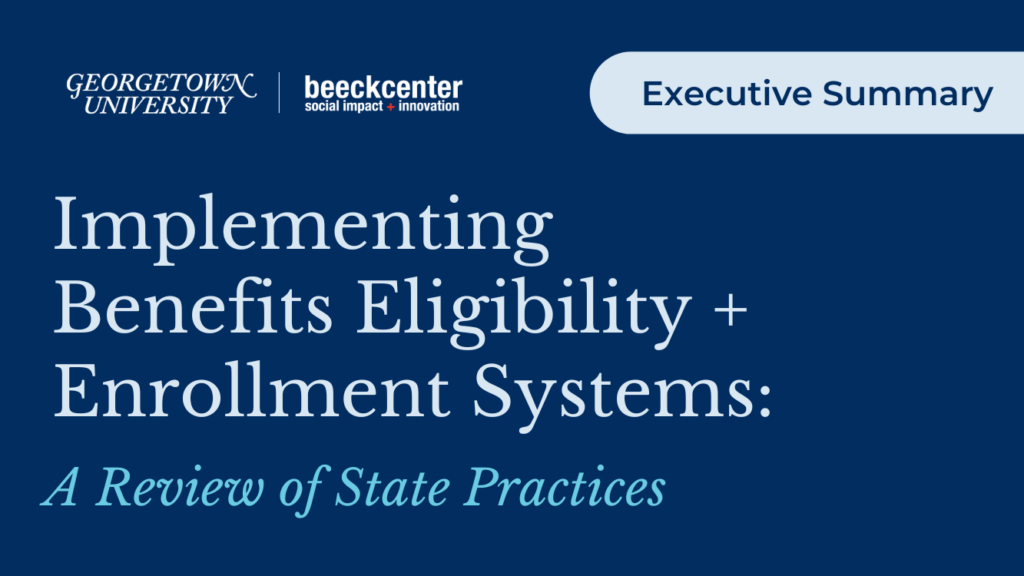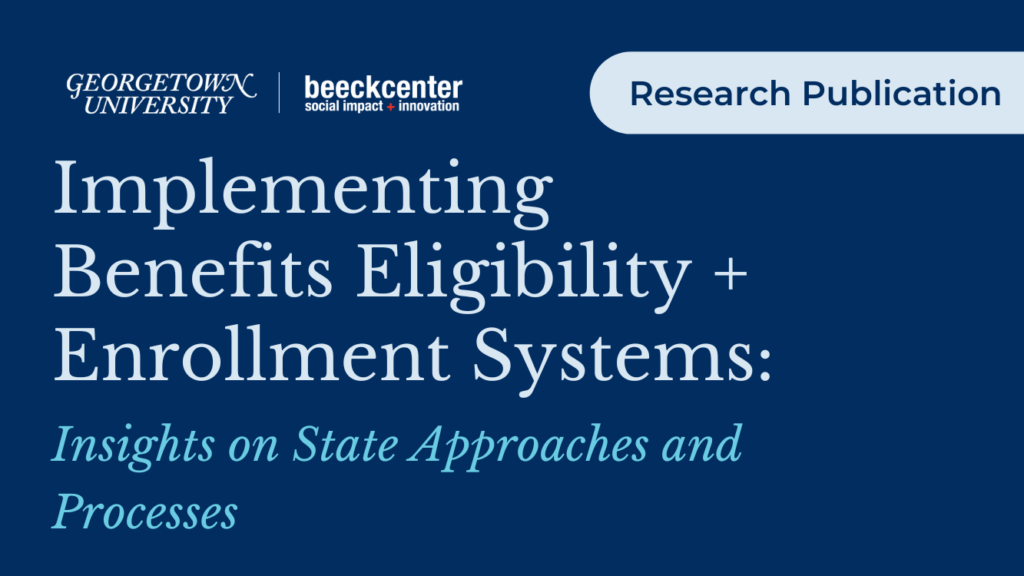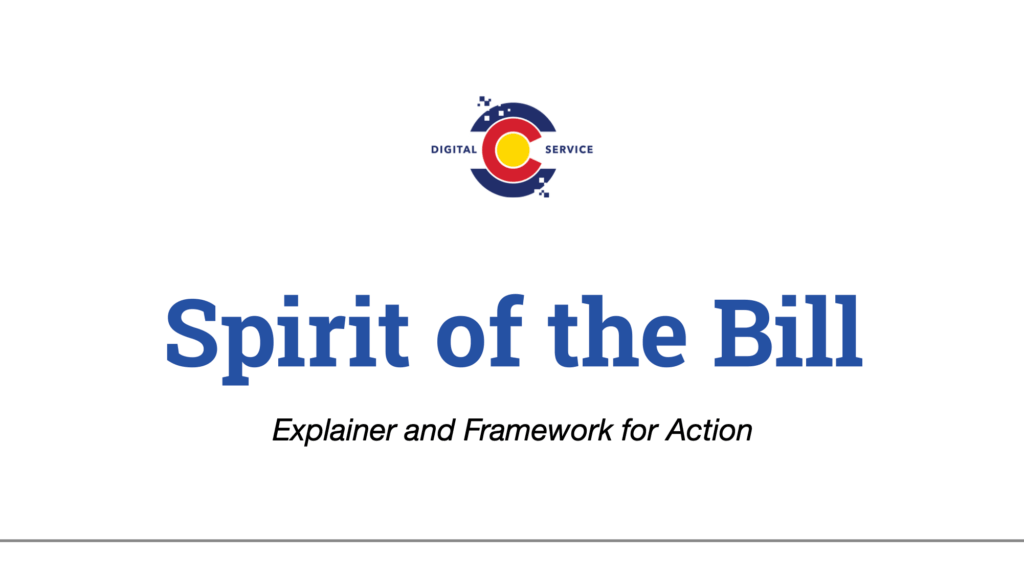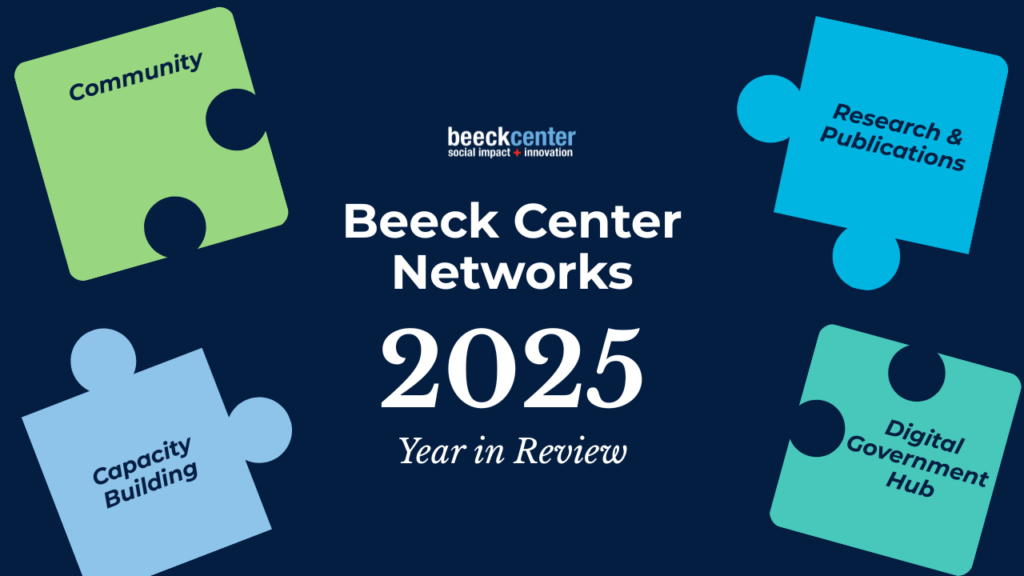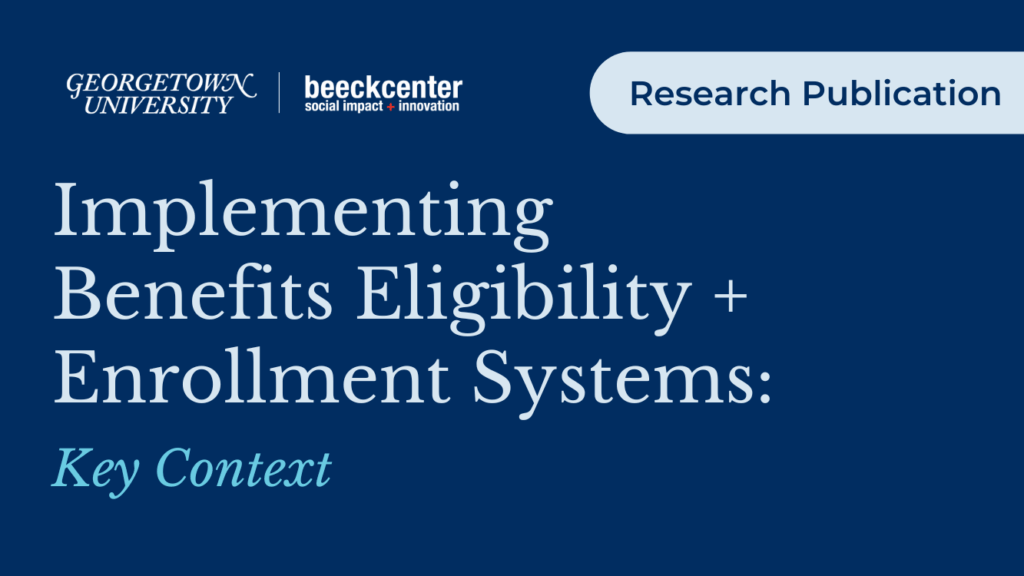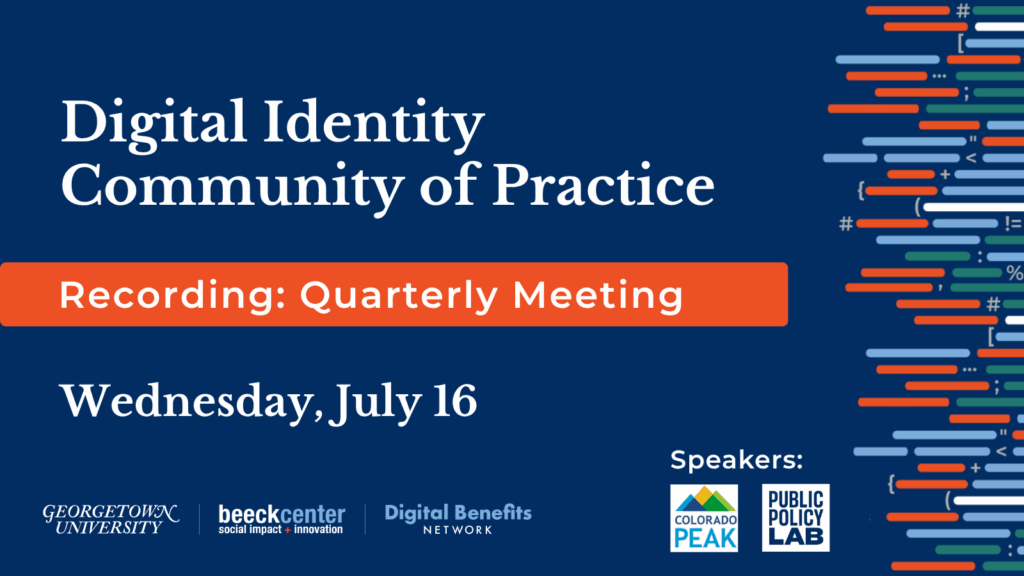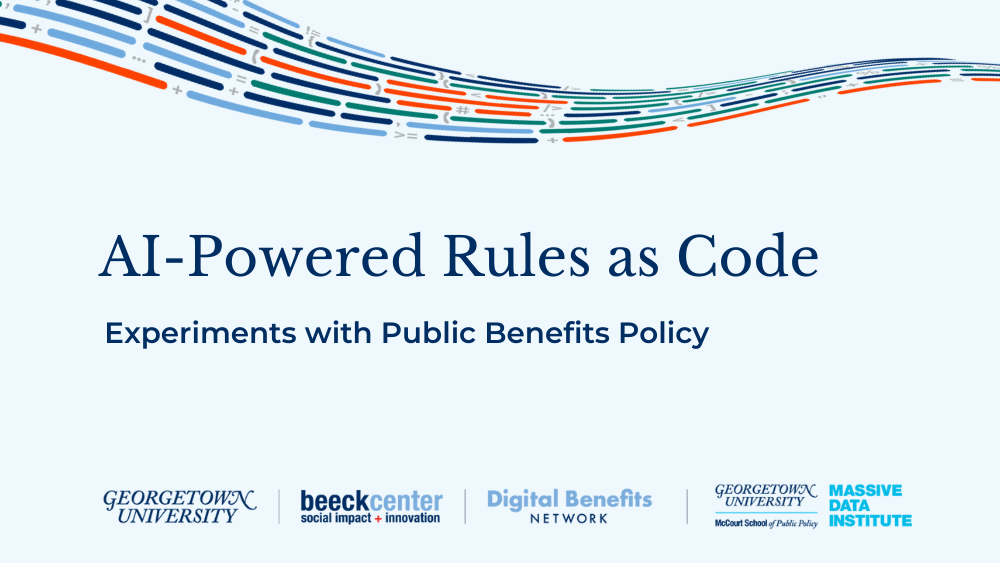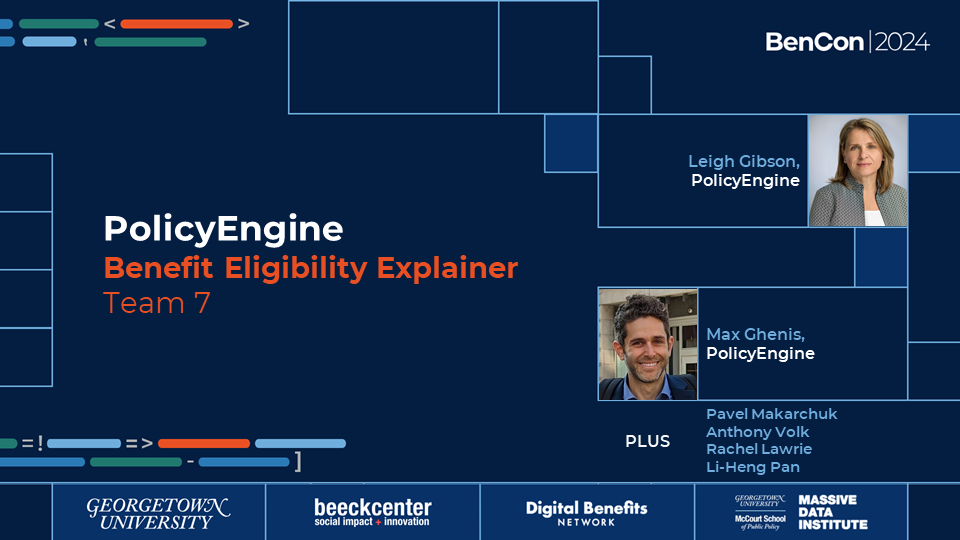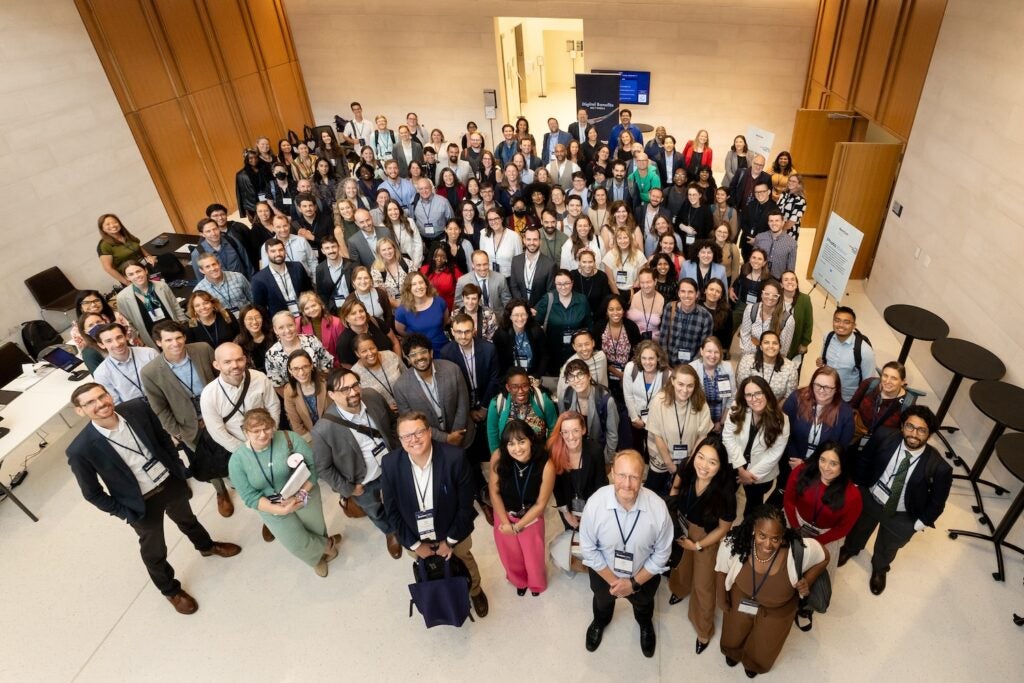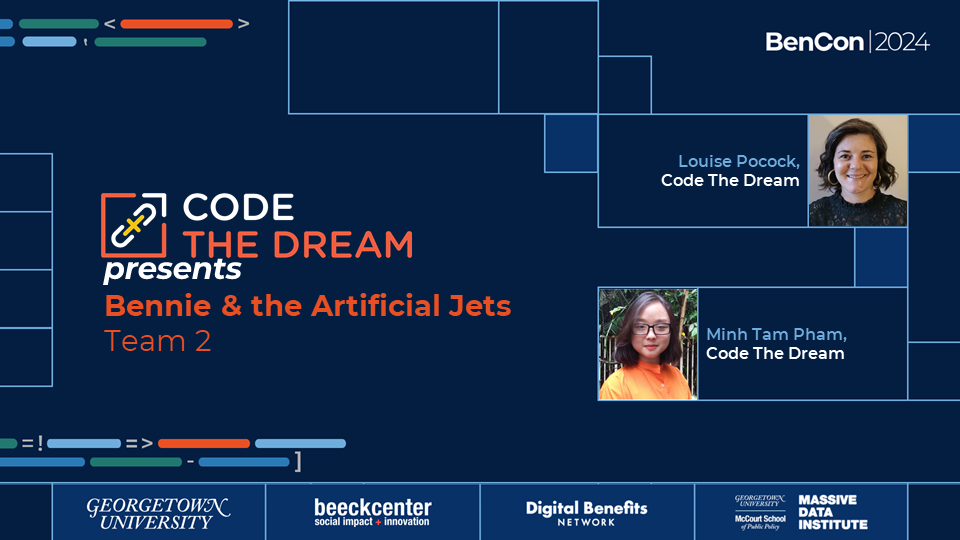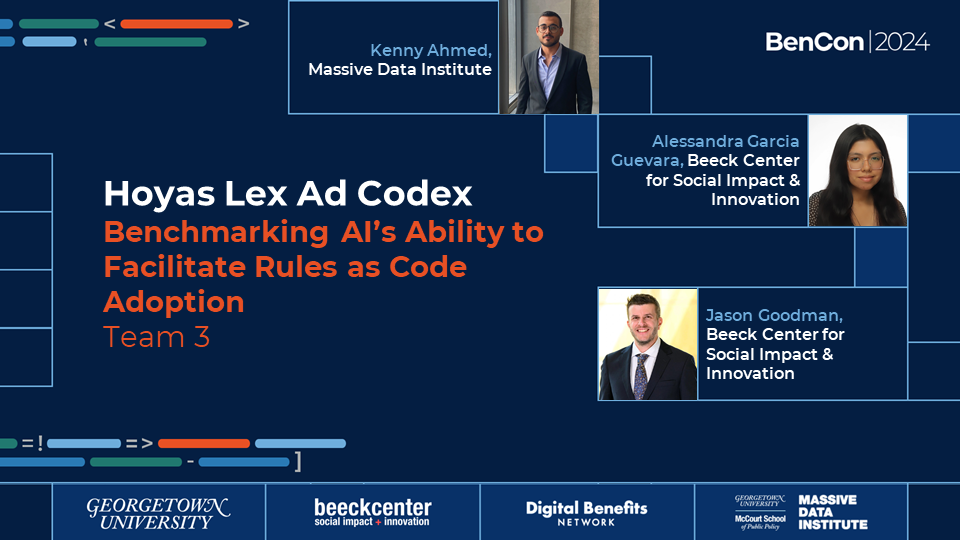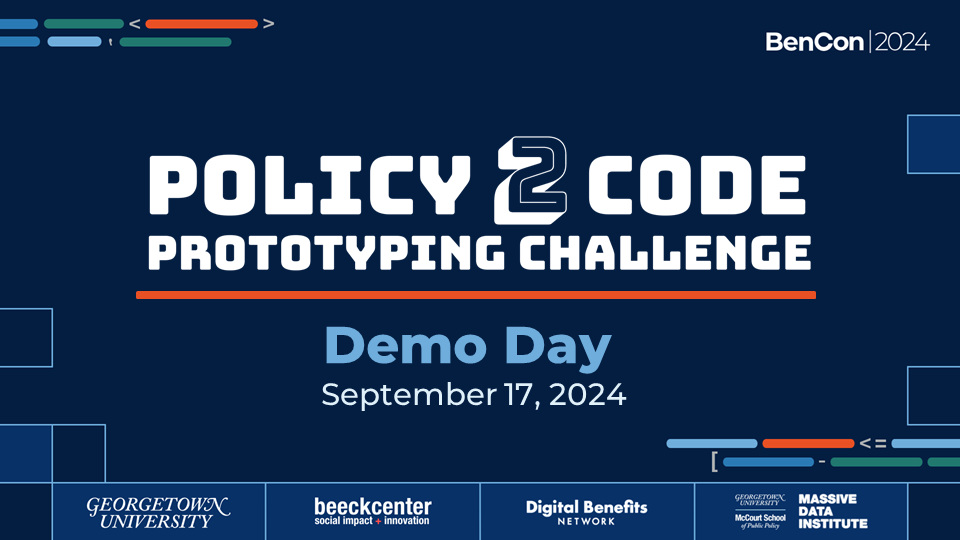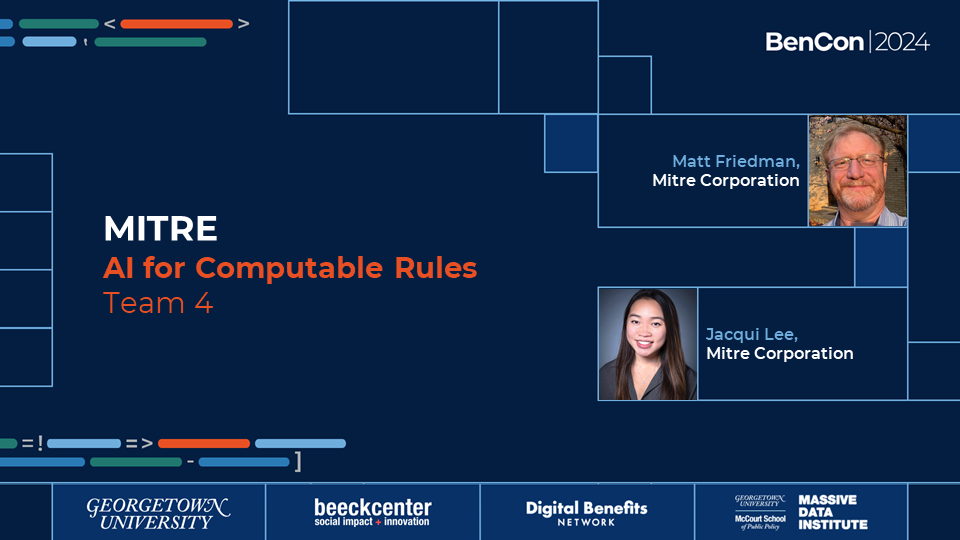Digitizing Policy + Rules as Code
A rules as code approach to rules and regulations could help close the gap between policy and service delivery for governments, delivery organizations, and—most importantly—people seeking services.


Translating policy into standard and transparent computer code.
Millions of people across the United States use digital systems to find out if they are eligible for health and human services, and then apply for, enroll in, and maintain their benefits. In order to implement these digital systems, program and policy teams work with software developers to translate laws, regulations, and policy documents into computer code. Implementation requires collecting and interpreting a jumble of potentially conflicting sources across programs and states. Compounding the potential for errors and inconsistencies, this process is repeated every time there are changes or updates to rules, and duplicated across every entity that uses a digital system for benefits access.
Adopting a Rules as Code approach—translating rules, laws, and policies into machine-consumable form—could enable more government transparency, generate cost savings, and create a more seamless system for writing, testing, and implementing government rules.
This page includes research, example projects, and technical demos of Rule as Code approaches.
Subtopics
Explore our 2 digitizing policy + rules as code subtopics below.
Demos
Research
How to Get Started
These resources can help you get oriented to Rules as Code.
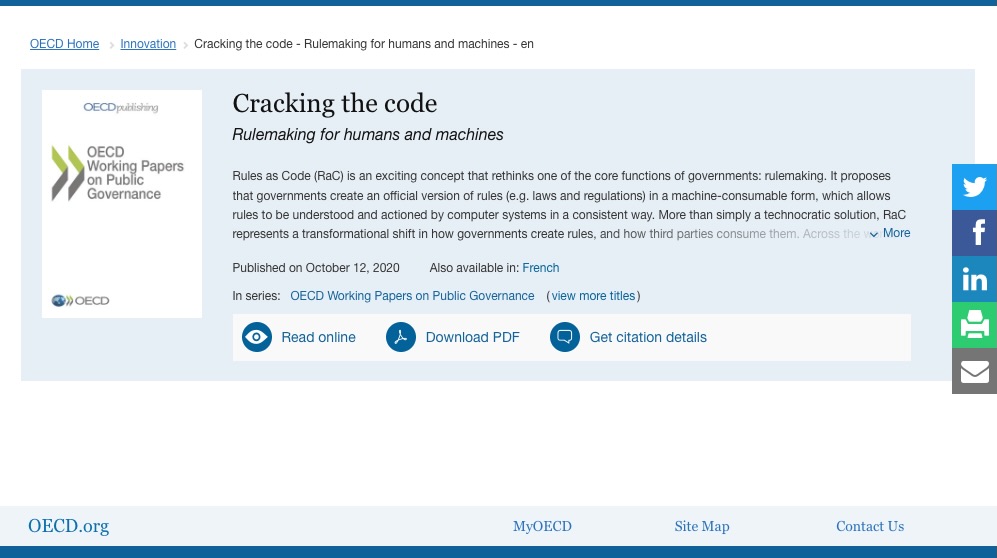
Cracking the code: Rulemaking for humans and machines
The OECD report explores the concept of “Rules as Code” (RaC), proposing a transformation in government rulemaking by developing machine-consumable regulations alongside human-readable versions.
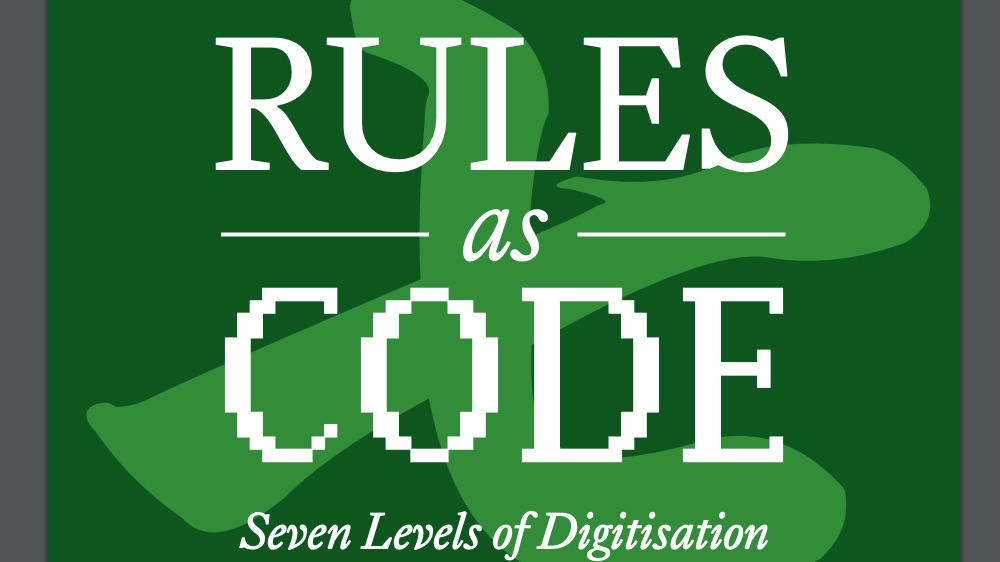
Rules as code: Seven levels of digitisation
This report, written for practitioners, classifies “digital transformation” of legal rules into a hierarchy of levels to help establish common terms.
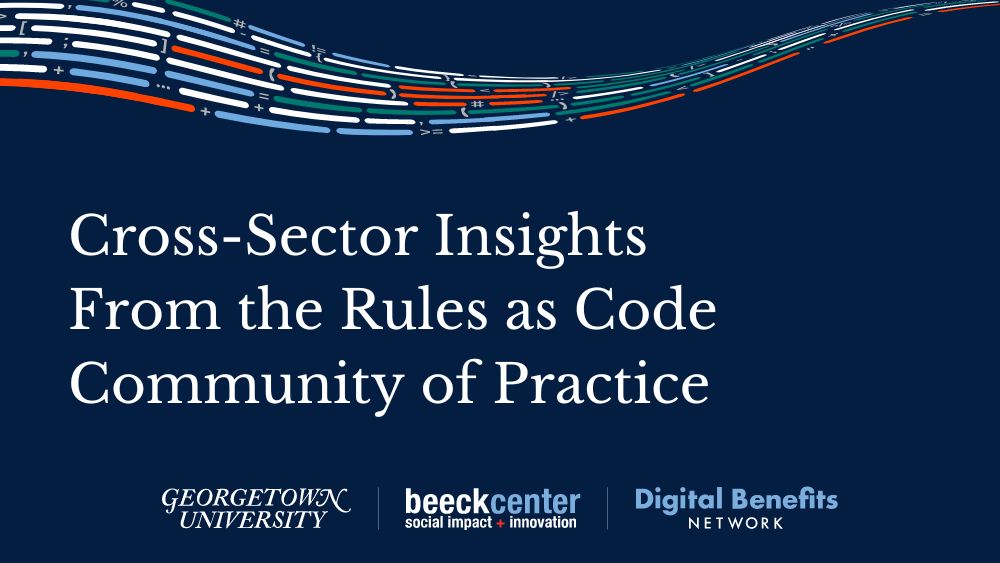
Cross-Sector Insights From the Rules as Code Community of Practice
This report highlights key findings from the Rules as Code Community of Practice, including practitioners’ challenges with complex policies, their desire to share knowledge and resources, the need for increased training and support, and a collective interest in developing open standards and a shared code library.
Join the Rules as Code Interest Area
The DGN’s Rules as Code Interest Area creates a shared learning and exchange space for people working on public benefits eligibility and enrollment systems — and specifically people tackling the issue of how policy becomes software code.
Rules as Code for Benefits Delivery
The Digital Benefits Network has focused research on applying Rules as Code in the context of benefits delivery. See how Rules as Code can apply to benefits eligibility and enrollment systems.

Applying Rules as Code to the Social Safety Net
This short report outlines the promise and potential of digitizing benefits eligibility policy.
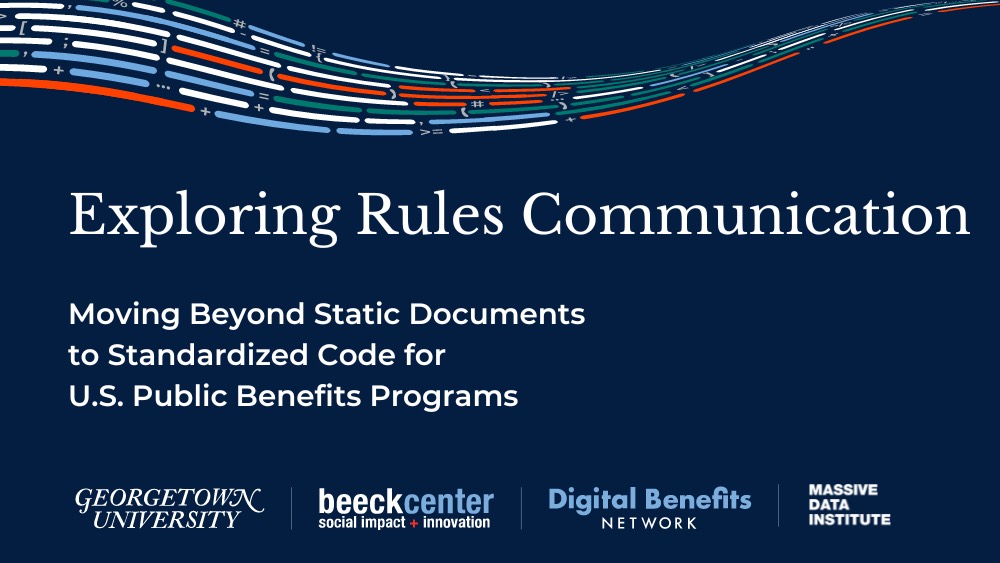
Exploring Rules Communication: Moving Beyond Static Documents to Standardized Code for U.S. Public Benefits Programs
This brief analyzes the current state of federal and state government communication around benefits eligibility rules and policy and how these documents are being tracked and adapted into code by external organizations.
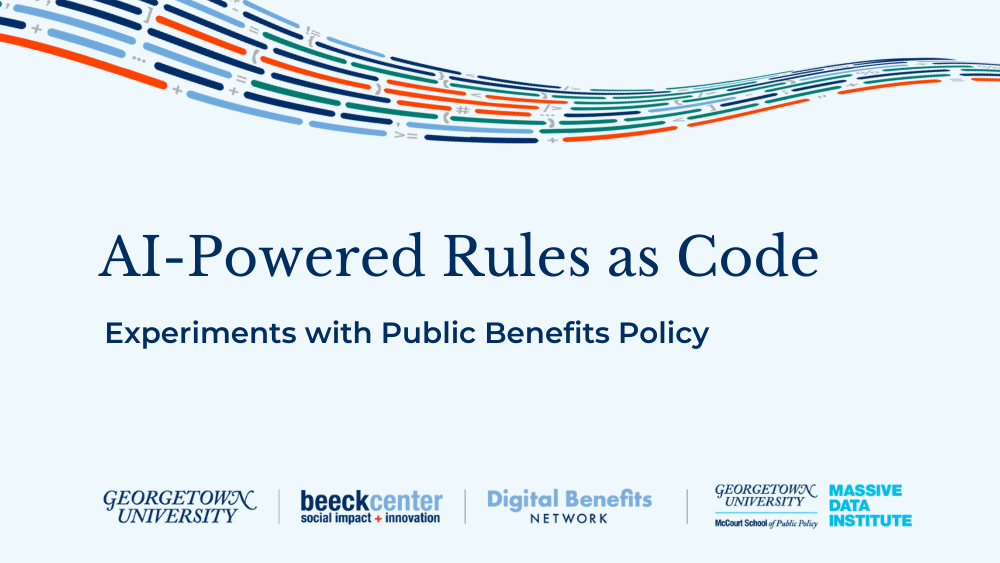
AI-Powered Rules as Code: Experiments with Public Benefits Policy
This report documents four experiments exploring if AI can be used to expedite the translation of SNAP and Medicaid policies into software code for implementation in public benefits eligibility and enrollment systems under a Rules as Code approach.
Discover All of Our Digitizing Policy + Rules as Code Resources
Below you can see the latest items and the most popular. Click View More to see all resources and examples.
